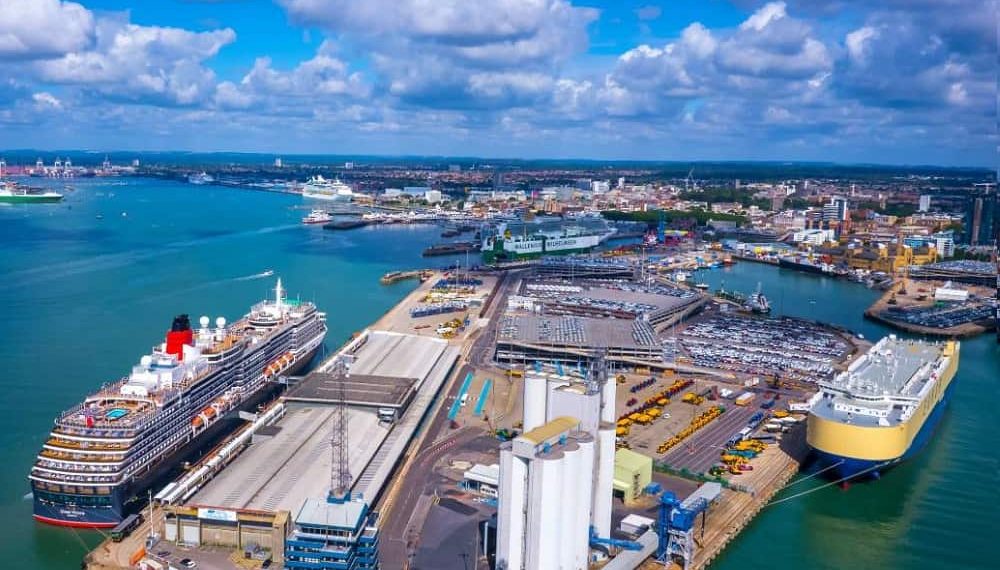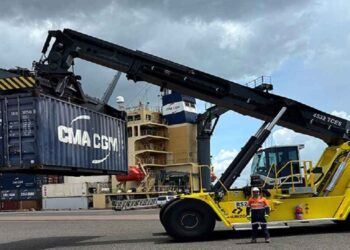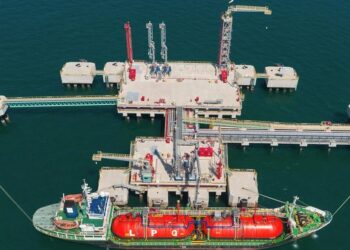Verizon Business and Associated British Ports (ABP) have announced that they will be working together to deploy private 5G at the Port of Southampton.
Delivered in partnership with Nokia, Verizon’s private 5G platform will provide one of the United Kingdom’s (UK’s) busiest ports with a secure, low-latency private network connection.
ABP operates a network of 21 ports, including the Port of Southampton. Acting as the UK’s number one port responsible for £40 billion in exports from the UK every year, the Port of Southampton provides a critical link in supply chains serving businesses and manufacturers throughout the nation. It is also the UK’s number one port for cars and cruise, handling approximately 900,000 cars and welcoming millions of cruise passengers annually. With this new contract the Port of Southampton will become the first UK mainland port with a private 5G network.
“Verizon’s private 5G is the foundation for a completely dedicated edge compute infrastructure, enabling ultra-low latency at the premise, higher levels of security and deeper customization for our partners,” comments Tami Erwin, CEO, Verizon Business. “Businesses such as ABP, are coming under more pressure to evolve their services at tremendous speeds in order to take advantage of new commercial opportunities. Along with Nokia, we have been able to equip ABP to take advantage of the immediate benefits private 5G offers, and most importantly prepare the Port of Southampton to take full advantage of new technology applications and real-time analytics which will digitally transform its services in the future.”
The Verizon private 5G platform will provide ABP with a reliable and secure private wireless data network across selected areas within the East and West Docks of the Port. This will enable data communications to be consolidated onto a single network, reducing previous complexity as well as helping to improve the reliability and security of terminal communications.
The deployment will not only address the immediate problem of loss of onsite data communications as a result of poor Wi-Fi connectivity, but the advanced capabilities of private 5G, specifically its reliability, throughput, security and ultra-low latency can help enable the use of new technologies such as real-time analytics, the Internet of Things (IoT) and Machine Learning. In turn, this can help with the enablement of new service advancements including asset tracking, autonomous guided vehicles, workflow management, predictive maintenance and safety monitoring in the near future.
Henrik L. Pedersen, ABP Chief Executive Officer, said: “Building flexible and resilient technology platforms to meet our customers’ needs is a key element of our strategy, and becoming the first mainland port operator in the UK to offer a private 5G network to our customers is a fantastic milestone for ABP.
“We would like to thank our partners for enabling this project, which will equip our Port in Southampton with the state-of-the-art infrastructure needed to be at the forefront of the digital revolution in the maritime industry.”
Verizon Business announced the launch of its international private 5G platform for global enterprises located in Europe and Asia-Pacific in October 2020. This solution, currently delivered in partnership with Nokia, will enable businesses to deploy a private industrial grade dedicated 5G network capability within their premises. The network is on Nokia Digital Automation Cloud, an application platform providing high-bandwidth, low-latency, hyper-fast private wireless connectivity and local edge computing.
“The 5G opportunity will be fully realized with Industry 4.0 as spectrum opens up and private 5G networks go into operation at industrial sites around the world,” said Brian Fitzgerald, SVP Verizon Business Group, Nokia. “We are committed to enabling our strategic partner Verizon Business to expand its 5G global footprint with enterprise customers such as ABP; by providing unprecedented levels of support to drive success for private 5G as well as delivering the highest levels of performance, resilience and security required by its customers”.


































